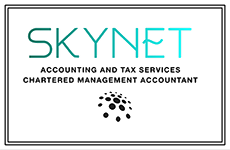Welsh Land Transaction Tax holiday extended
Following Rishi Sunak’s announcement of the Stamp Duty Land Tax (SDLT) holiday extension at last week's Budget, the Welsh government has decided to make a similar move with Land Transaction Tax. What are the key points?

The SDLT holiday extension was one of the worst-kept secrets ahead of the 2021 Spring Budget. However, there was no indication that the Welsh or Scottish governments had any plans to announce similar extensions. The Welsh government has now done so, extending the nil rate band for Land Transaction Tax (LTT) to 30 June 2021. The extension means that no LTT will be payable on residential purchases for consideration lower than £250,000 until after that date. However, unlike the SDLT extension there will be no transitional return to the standard level, with the threshold immediately returning to £180,000 from 1 July 2021. With the holiday being worth up to £2,450, the move will certainly help those who are struggling to complete transactions before the end of March but buyers should be aware that they will need to complete, not merely exchange contracts, by 30 June 2021 to avoid the cliff-edge.
So far, there is no indication that the Scottish government will follow suit and announce an extension, though this move from Cardiff will certainly put pressure on it to do so.
Related Topics
-
Simpler Recycling rules take effect
New rules on how workplaces must sort their waste and recycling have taken effect from 31 March. What are the key changes to be aware of?
-
New CGT reporting tool
Self-assessment returns aren’t set up for the change in capital gains tax (CGT) rates on the government filing system and will require a manual adjustment for 2024/25 to ensure the correct amount is paid. Why is there a problem and can a new online tool help?
-
MONTHLY FOCUS: THE ENTERPRISE INVESTMENT SCHEME QUALIFYING CONDITIONS
The enterprise investment scheme (EIS) is a generous collection of tax reliefs aimed at encouraging private investment into relatively young companies. In this Focus, we look at the qualifying conditions relating to the investor and the issuing company that must be met in order for a claim for relief to succeed.





 This website uses both its own and third-party cookies to analyze our services and navigation on our website in order to improve its contents (analytical purposes: measure visits and sources of web traffic). The legal basis is the consent of the user, except in the case of basic cookies, which are essential to navigate this website.
This website uses both its own and third-party cookies to analyze our services and navigation on our website in order to improve its contents (analytical purposes: measure visits and sources of web traffic). The legal basis is the consent of the user, except in the case of basic cookies, which are essential to navigate this website.